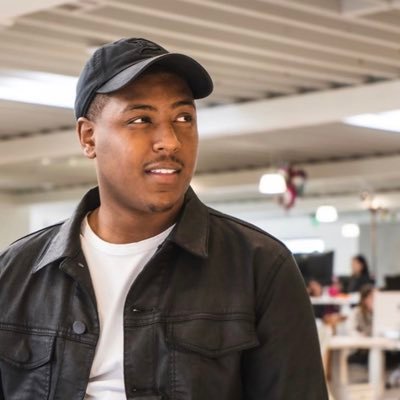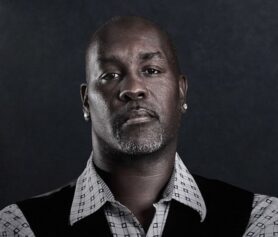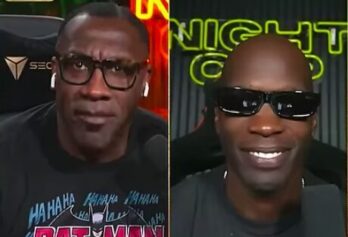These days, there are a ton of esports companies. But Delane Parnell switched up the game by tapping into an ignored market — high school students. Now his PlayVS company, which he launched in 2018 when he was just 26 years old, is the official platform for high school esports. PlayVS partners with high schools to create esports leagues and host tournaments through his platform.

By late 2020, PlayVS had secured $106 million in funding and received a valuation of $400 million, wrote Kevin J. Ryan in his upcoming book about Parnell “Ahead of the Game: The Unlikely Rise of a Detroit Kid Who Forever Changed the Esports Industry.”
Since its launch, PlayVS has hosted competitions for esports teams at 11,000 high schools — more than half the schools in the nation sanctioned by the National Federation of State High School Associations (NFHS)— and has users in every U.S. state. There are 20,000 NFHS-sanctioned high schools in the country. In addition to high school players, more than 1,200 colleges and universities have also launched teams through PlayVS, about a quarter of those in the country, according to Parnell.
The NFHS is the body that writes the rules of competition for most high school sports and activities in the U.S. The High School Esports League, considered the largest national esports league, has 140,00 participating students. While there are no concrete numbers on how many students use PlayVS, with PlayVs in more than half of the NFHS numbers are significant.
PlayVS charges high schools $64 per student per season to compete in after-school tournaments against other students. There are 27 NFHS regular seasons. In 2019, there were three leagues, each team in the league had at least 5 players. Do the math, and PlayVS is cashing in on esports.
PlayVS has had an exclusive contract with the National Federation of State High School Associations (NFHS) since 2018. It builds the video gaming infrastructure for high school esports. Using the PlayVS technology, students can now play esports on behalf of their school all the way to the state championship level.
“I don’t care if you’re gaming on your phone, on a console, or through a cloud service,” Parnell told Fast Company. “Gaming in high school, even if it’s tic-tac-toe, will run through us.”
In 2021, PlayVS teamed up with Special Olympics North America to offer esports to Special Olympics Unified Champion Schools. During the 2020-2021 school year, PlayVS and Special Olympics North America had a successful pilot league that included over 40 Unified teams from nine different states, Venture Beat reported.
Entrepreneurialism in his Heart
Before starting PlayVS, Parnell worked at IncWell Venture Capital. He went on to found Rush Esports, an e-sports team acquired by Team Solomid, a professional esports organization.
Parnell Turned Gaming Hobby Into His Business
Parnell started gaming by playing Call of Duty in 2015. After he sold his own e-sports league, he met Peter Pham, a major esports investor. But while Pham helped him get his foot in the door in Silicon Valley, Parnell told Fast Company he pushed himself to stay there.
“It’s like having somebody open the door for you, and you gotta find your seat,” he says. “I didn’t just find a seat, though. I took it.”
After he launched PlayVS, he raised $50 million in a Series C round for a total of $96 million raised in 13 months. Among his investors were Adidas, Samsung, Sean “Diddy” Combs, and the VC arm of the Los Angeles Dodgers.
Parnell knows he’s one of few Black founders getting venture capital funds. Of the $147 billion of capital given to startup founders, only 1.2 percent of that funding goes to African-American entrepreneurs like Parnell. Parnell told Fast Company that investors are eager to be a part of the gaming boom.
“Investors are starting to realize that gaming is the next social paradigm. And they want a piece of it,” said Parnell.
Esports is Big Business
Esports, competitive video game playing, is a booming $1.8 billion business, according to Statista. Fast Company notes that 75 percent of high school students play video games.
Parnell Wowed Schools
Parnell worked with software developers to create a blueprint of the gaming demo. He explained how the students use the PlayVS platform to the high schools and investors.
“So, here’s how a student will log in and view their schedule and the opposing team’s roster. Here’s where they click to drop into a lobby; when all the students are in, the match begins. When it ends, the relevant data gets sent to PlayVS, and we’ll present it to the players like this,” said Parnell.
He presented that mockup to the NFHS. Before the presentation, he encountered skepticism from educators like Mike Koski. However, after the presentation, Koski was impressed with Parnell.
“We generally take things very slow at the NFHS, and we vet thoroughly,” Koski told Inc. “We’re going to be rubber-stamping something for 20,000 high schools, 16 million students, and a million and a half coaches. We knew, through talking with Delane and Peter, that they had it together. It made the process a lot shorter than I would have ever expected.”
After the successful demonstration, PlayVS won the partnership with over 10,000 schools.
Parnell chooses games for the tournaments that build teamwork and teach students lessons as they play, to calm concerns that the games would be too violent.
In January 2020, Fortnite, one of the most popular games on the market, is now be an official high school sport and college sport, thanks to partnership with PlayVS. FIFA, Madden, and League of Legends, are also among the games on the PlayVS lineup. Nintendo titles Splatoon 2 and Smash Bros are also included.
Parnell Wants More Black E-Sports Companies and Black Schools To Get Funding
Parnell wants PlayVS to boost Black-owned businesses and close the wealth gap for Black schools as well. Many schools in underserved neighborhoods can’t afford the high-tech devices that PlayVS platforms require for the school e-sports tournaments. He told Fast Company that he hopes to get video game publishers to rehab computer labs in African-American schools.
“We’re focusing on narrowing that wealth gap,” said Parnell.
Parnell has proved with his esports company PlayVS that with determination, the right connections, and business savvy, Black entrepreneurs can break through and have great success.




